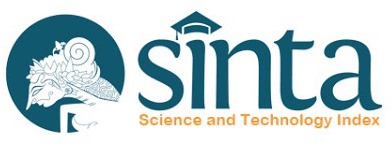MOLECULAR IDENTIFICATION OF SPONGES OBTAINED FROM SERIBU ISLANDS NATIONAL PARK AND THEIR ASSOCIATED BACTERIA
Abstract
Sponges are simple multicellular animals that produced many pharmaceutical secondary metabolites. Some sponge-associated bacteria are proven to produce the same metabolites as their host, giving an opportunity to mass produce the potential metabolites. The aim of this research was to analyze the diversity of sponge-associated bacteria and to identify the host sponge. Samples were collected from Seribu Islands National Park. Partial identification of sponges were conducted by molecular technique with the mitochondrial cytochrome oxidase subunit 1 (CO1) as the target area. The diversity of sponge-associated bacteria was determined by Terminal Restriction Fragment Length Polymorphism (T-RFLP) method. Result showed that sponges PS-17-12 has similarity with Petrosia sp., while PS-26-12 and PS-38-12 has similarity with Xestospongia muta. From the 3 sponge samples, 85 species of bacteria was obtained which can be classified into 9 phylums and 1 uncultured bacteria/environment sample. Some of the sponge-associated bacteria identified were known as a potential producer of metabolites with antibiotic activity.
Keywords
sponge, bacterial diversity, T-RFLP
Full Text:
PDFDOI: https://doi.org/10.15578/squalen.80
Article Metrics
 PDF Download: 470
PDF Download: 470
Refbacks
- There are currently no refbacks.
ISSN : 2089-5690(print), E-ISSN : 2406-9272(online)
This work is licensed under a Creative Commons Attribution-NonCommercial-ShareAlike 4.0 International License.










